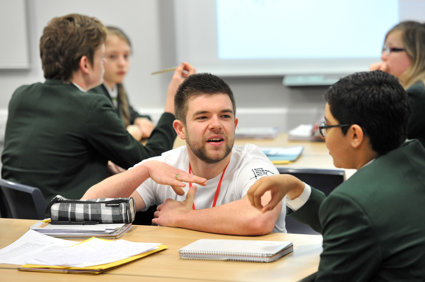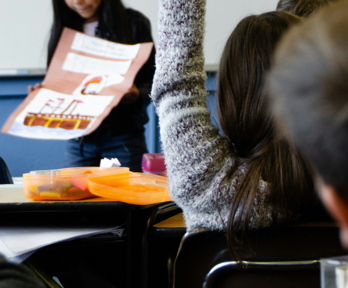
Geography in schools
The study of geography equips young people with the knowledge and understanding to be informed citizens in the 21st century, providing them with the skills to pursue a range of careers.
Geography:
-
Stimulates an interest in places, people and the environment.
-
Helps young people make sense of a complex and dynamically changing world and how society, the economy and environment combine to bring about change.
-
Explains where places are, how places and landscapes are formed, how people and their environment interact.
-
Explores how a diverse range of economies, societies and environments are interconnected.
-
Examines natural resources and their sustainable use.
Over recent years the number of students studying geography at school and university has been rising, with geography experiencing some of the most rapid rates of growth for all subjects. The number of GCSE entrants has increased by 100,000 students in the last decade; it is now the sixth most popular subject at GCSE. Increases have also been seen at A level.
The changing nature of who is, and who is not, studying geography in English schools, colleges and universities was explored in our Geography of geography report.
The report showed that the increase in GCSE numbers has come predominately from groups who had been previously less likely to study GCSE geography – notably, Black, Asian and minority ethnic (BAME)* pupils, disadvantaged pupils, and pupils with lower prior attainment. With respect to BAME pupils, those of Chinese ethnicity now have the highest entry rate for geography of all groups (52%), and over the period 2010 to 2018 the proportion of GCSE entries by Black/Black British pupils doubled from 18.6% to 37.3%. Pupils of a (known) BAME background now represent about 23% of all geography GCSE entries. However, such progress is not reflected in the transition from GCSE to A Level where, apart from white pupils, fewer pupils of all other ethnicities chose geography than would be expected. The narrowing of geography’s BAME intake continues at university. In 2018, 88% of undergraduate geographers were white.
In Scotland, more than 11,200 pupils achieved a 'pass' in Geography at SCQF level 3 - 5 in 2014/15, whilst nearly 5,500 students passed SCQF level 6 - 7.
The importance of geography has been recognised by government: the UK Government has included geography as one of the subjects within the English Baccalaureate (EBacc) aimed at getting more students to study core subjects at GCSE.
Geography is important for further study and careers: the Russell Group of Universities recognise A Level geography as one of the key 'facilitating' subjects for entry to degree level study. Their website Informed Choices provides details. Geography graduates have highly valued, transferable skills, equipping them for a range of careers.
The subject content, aims and learning objectives required for GCSE geography and A Level geography specifications are set out by government.
* Overall Black and minority ethnic pupils currently make up over 30 per cent of pupils in primary and secondary schools in England (Runnymede Trust CERD Submission 2021)

Geography of geography: the evidence base
Geography of geography: the evidence base for those who are (and are not) progressing from GCSE to A Level to university.

Young people's views on subject choices, further study and careers
What motivates young people's choices of subjects to study at school and university, and what influences their career choices?

What do young people think about geography?
Why is there a lower uptake of geography at A Level and at university by students from lower socio-economic backgrounds and minority ethnic groups?

'I didn't have any teachers that looked like me'
Sharing the experiences of Black, Asian, and minority ethnic geography teachers.

